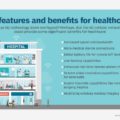
What are Intellectual and Developmental Disabilities?
Intellectual and developmental disabilities (IDDs) are disorders that are usually present at birth and that negatively affect the trajectory of the individual’s physical, intellectual, and/or emotional development. Many of these conditions affect multiple body parts or systems. As of 2016, 7.37 million people in the United States had intellectual or developmental disabilities. Intellectual disability starts any time before a child turns 18 and is characterized by problems with both intellectual functioning or intelligence – which includes the ability to learn, reason, problem-solve, and other skills – and adaptive behavior, which includes everyday social and life skills.
The term “developmental disabilities” is a broader category of often lifelong disability that can be intellectual, physical, or both. “IDD” is the term often used to describe situations in which intellectual disability and other disabilities are present. Examples of developmental disabilities include autism, behavior disorders, brain injury, cerebral palsy, Down syndrome, fetal alcohol syndrome, intellectual disability, and spina bifida.
Causes and Risk Factors
Developmental disabilities begin anytime during the developmental period and usually last throughout a person’s lifetime. Most developmental disabilities begin before a baby is born, but some can happen after birth because of injury, infection, or other factors.
Most developmental disabilities are thought to be caused by a complex mix of factors. These factors include genetics; parental health and behaviors (such as smoking and drinking) during pregnancy; complications during birth; infections the mother might have during pregnancy or the baby might have very early in life; and exposure of the mother or child to high levels of environmental toxins, such as lead. For some developmental disabilities, such as fetal alcohol syndrome, which is caused by drinking alcohol during pregnancy, we know the cause. But for most, we don’t.
Following are some examples of what we know about specific developmental disabilities:
- At least 25% of hearing loss among babies is due to maternal infections during pregnancy, such as cytomegalovirus (CMV) infection; complications after birth; and head trauma.
- Some of the most common known causes of intellectual disability include fetal alcohol syndrome; genetic and chromosomal conditions, such as Down syndrome and fragile X syndrome; and certain infections during pregnancy.
- Children who have a sibling with autism are at a higher risk of also having autism spectrum disorder.
- Low birthweight, premature birth, multiple birth, and infections during pregnancy are associated with an increased risk for many developmental disabilities.
- Untreated newborn jaundice (high levels of bilirubin in the blood during the first few days after birth) can cause a type of brain damage known as kernicterus. Children with kernicterus are more likely to have cerebral palsy, hearing and vision problems, and problems with their teeth. Early detection and treatment of newborn jaundice can prevent kernicterus.
The Study to Explore Early Development (SEED) is a multiyear study funded by CDC. It is currently the largest study in the United States to help identify factors that may put children at risk for autism spectrum disorders and other developmental disabilities.
What Does DSP Mean In Healthcare
DSP stands for Direct Support Professional which refers to someone who works directly with people who have intellectual or developmental disabilities (IDD). DSPs aim to assist people in realizing their full potential. They help people become integrated and engaged in their community.
In the past, DSPs were trained as caregivers. But over the past few decades, the needs of those being served changed. Therefore, the roles of DSPs began to change. Now, DSPs take on different aspects and roles than caregiving. It is no longer about doing things for people. It is about helping them learn how to do things for themselves.
DSPs are a very Distinct Workforce
DSPs perform some of the functions of clinicians, service coordinators, administrators, managers, maintenance, and clerical personnel. DSPs are distinct in that they are trained in a variety of methods. They are held to a high, nationally validated Code of Ethics and set of Core Competencies. SEE: Principles of Access and Equity in Disability
Duties & Responsibilities of Direct Support Professional
DSPs help individuals with IDD by providing them with safe living environments, helping them with daily tasks, and teaching them life skills. Direct support professionals commonly see to the following tasks:
- Keep the patient safe from health hazards. For example, a DSP would keep sharp knives in locked drawers and store household cleaners in locked cabinets.
- Monitor individuals’ behavior toward themselves and others, and maintain patients’ records of problems and progress.
- Report any instances of suspected abuse, neglect, or exploitation to the appropriate authorities so that protective services specialists can investigate the situations if necessary.
- Help individuals with tasks like cooking, cleaning, showering, toileting, shopping, and managing money.
- Teach patients tasks that they can ultimately learn to do for themselves.
DSPs can work with adults as well as children. In some cases, they might be authorized to administer medications.





